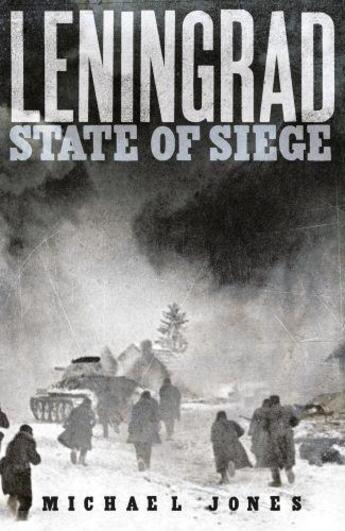-
Nombre de pages : (-)
-
Collection :
(-)
-
Genre :
(-)
-
Thème :
Non attribué
-
Prix littéraire(s) :
(-)
Résumé:
When the German High Command encircled Leningrad it was a deliberate policy to eradicate the city's civilian population by starving them to death. As winter set in and food supplies dwindled, starvation and panic set in.
A specialist in battle psychology and the vital role of morale in... Voir plus
When the German High Command encircled Leningrad it was a deliberate policy to eradicate the city's civilian population by starving them to death. As winter set in and food supplies dwindled, starvation and panic set in.
A specialist in battle psychology and the vital role of morale in desperate circumstances, Michael Jones tells the human story of Leningrad. Drawing on newly available eyewitness accounts and diaries, he shows Leningrad in its every dimension including taboo truths, long-suppressed by the Soviets, such as looting, criminal gangs and cannibalism.
But, for many ordinary citizens, Leningrad marked the triumph of the human spirit. They drew deeply on their inner resources to inspire, comfort and help one another. At the height of the siege an extraordinary live performance of Shostakovich's Seventh Symphony profoundly strengthened the city's;will to resist. When German troops heard it in their trenches;one;remarked: 'We began to understand we would never take Leningrad.
Yet, Leningrad's self-defence came at a huge price. When the 900-day siege ended in 1944 almost a million people had died and those who survived would be permanently marked by what they had endured, as this superbly insightful and moving;history shows.
Donner votre avis















